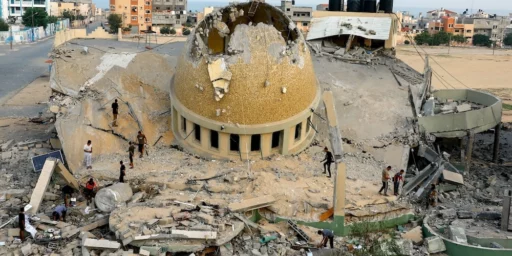Regulating Contract Soldiers
Phil Carter passes on news of early attempts to regulate contract soldiers in Iraq. In addition to status of forces and international law issues I’ve noted in previous posts, the article points out a number of practical issues that must be resolved:
The CPA’s program management office is reviewing bids on a master contract to coordinate security among the 10 largest prime contractors and their subcontractors working on $18.4 billion in U.S.-backed reconstruction as they deploy throughout Iraq. In the meantime, the program management office is “trying to get at least some level of intelligence sanitized from the military that could be given to contractors,” said Capt. Bruce A. Cole, spokesman for the program management office in Baghdad.
As violence increased in the last two weeks, private security firms learned that they could not rely on U.S. or coalition forces to rescue them under attack. The companies have begun to band together to share information and to coordinate their own rescue teams for life-threatening situations.
Col. Jill Morgenthaler, a spokeswoman for the U.S. military in Baghdad, said “the military cannot guarantee the safety of civilians” in Iraq. “When we can, we respond.”
Military operations against insurgents take precedence, although commanders can decide to rescue civilians depending “on mission, situation, conditions,” Morgenthaler said by e-mail.
One CPA official said the unexpected central role played by contractors in Iraq has forced the U.S. government to pay more attention to what everyone had expected to be a low-key, auxiliary protection force. “We’re growing the capacity of the industry in a way we did not anticipate,” said the official, who spoke only on the condition of anonymity. “The industry realizes they have to impose some kind of standards” on their employees.
The brutal killings of four American security contractors in Fallujah two weeks ago prompted 13 Democratic senators led by Jack Reed (R.I.), to ask the Defense Department to provide a tally of how many private armed non-Iraqi security personnel are in Iraq. In their letter, the senators said that “security in a hostile fire area is a classic military mission. Delegating this mission to private contractors raises serious questions.”
When my unit deployed to the last Gulf War, we had one civilian contractor with us–a tech rep from the company that manufactured our weapons system. I can’t recall whether he was issued a sidearm but he had no combat role at all. The cooks and other service support personnel were American soldiers. Clearly, if we’re going to hire out all these jobs to contractors–which may well be a good idea, although it’s not one I’ve studied enough to have a firm opinion one–we need to figure out the rules. Fast.
This issue hadn’t occured to me, although one would think security screening procedures would take care of it:
“Policy is way overdue in this area,” Reed said. Not only do troops need better guidance on dealing with private guards, he said, but also the CPA should want assurances that insurgents cannot infiltrate the companies as “may already be occurring in the new Iraqi police and civil defense forces.”




There are reports that over 80 security contractors were killed in the fightings across the country last week but their dead are not officially counted/reported among US mil casualties – it is also known that they’re getting pretty much no support from the mil. Deaths only reported if journalists notice (like bombed convoys etc).
Don’t know how true that is. From independent.net (R.Fisk) via agonist.com
—